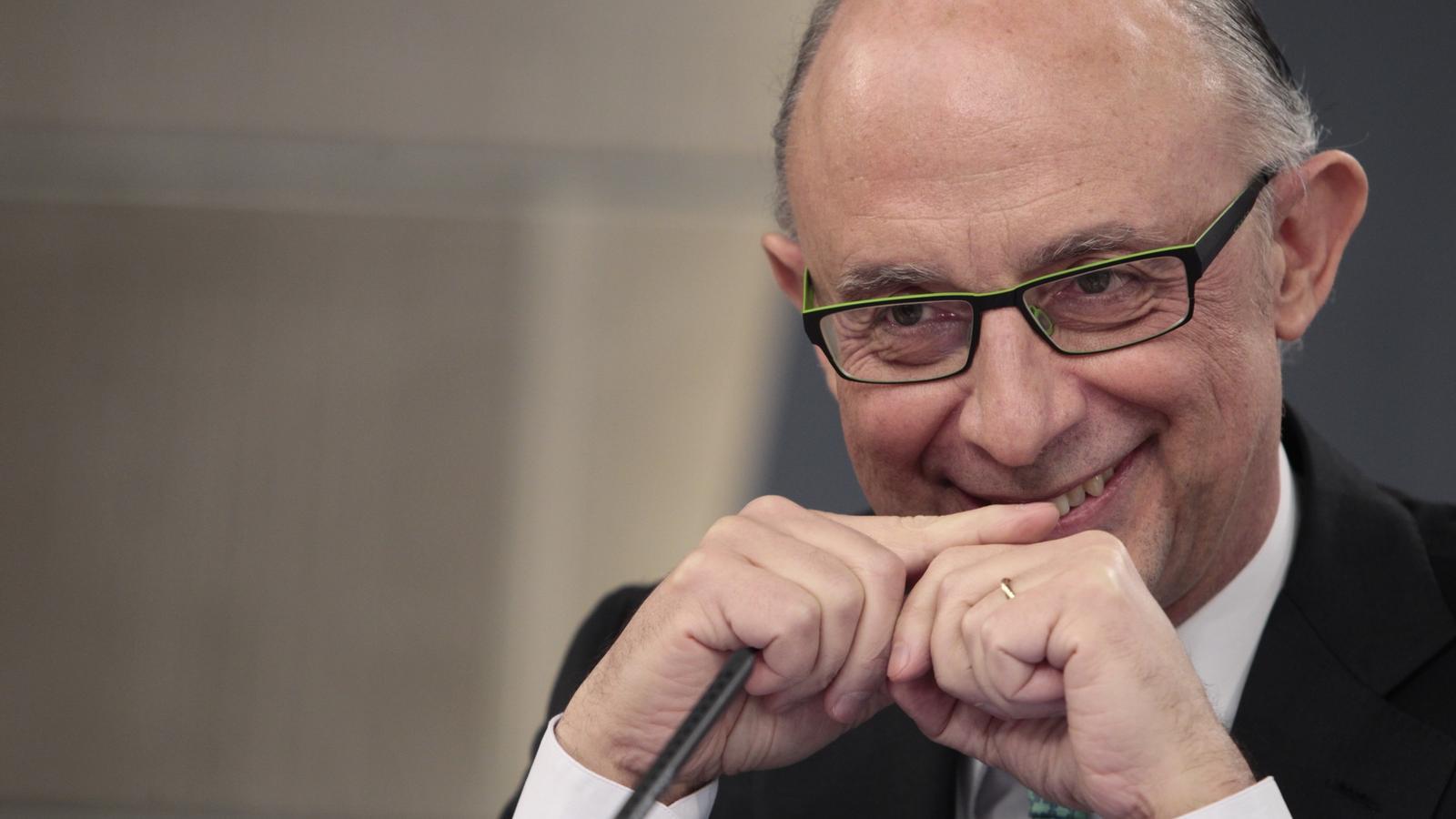Could lobbying regulations prevent a case like Montoro's?
Experts consulted by ARA agree that it would limit irregularities and help detect them earlier.

MadridThe Cristóbal Montoro case has put pressure groups, known as lobbyists, in the spotlight. They are unregulated in Spain, and their impact on the legislative agenda is a black hole. The discovery, following an investigation in a Tarragona court, that the law firm Equipo Económico (EE), founded by the former Minister of Finance, managed to modify laws to benefit companies that allegedly paid them commissions has revived the debate on regulating the activity of interest groups. The PSOE (Spanish Socialist Workers' Party) has expressed its intention to push forward, after the summer, a Spanish government bill addressing this issue that has been shelved in Congress for months.It has been carried over since the previous legislature–. But would this legislation serve to prevent a case like that of Montoro and EE?
Several experts consulted by ARA agree that, although there is still more to be done, the executive text points to some elements that would serve to put spokes in the wheels of the possibility of irregularities and detect them earlier. They add that regulating the legitimate activities of lobbyists is also necessary to differentiate them from conduct punishable by the Penal Code, such as bribery or influence peddling.
The regulatory footprint
One of the new features introduced by the law is the "regulatory footprint." This involves compiling an open report on the contributions made by lobbyists and the meetings held with public officials during the drafting of a law. "If there were a regulatory footprint, we would have realized long before that there was a conflict of interest in the case of the Economic Team," Carlos Parry, president of the Association of Professionals in Institutional Relations (APRI), reflected in an interview with ARA. With this measure, contacts between officials from the Ministry of Finance and members of the investigated firm, as well as proposals they made, for example, to lower the electricity tax, would have had to be recorded in a public document accompanying the legal amendment. "Having a record of how open legislators have been when accepting different suggestions would help make the process more transparent and limit irregularities, but it would not prevent them from occurring," Joan Ridao, professor of constitutional law at the University of Barcelona, added when asked by this newspaper. Last year he published a book on lobby regulationThe former ERC MP also believes that it should be incorporated directly into the regulations of the parliamentary chambers.
Registration and supervision
In addition to this regulatory footprint report, the text creates a registry of interest groups that would have required the Economic Team to publicly identify itself as a lobbyist. Being a member implies reporting work meetings and contacts with public officials. The law also establishes that, upon registration, it is necessary to specify whether the individuals who will perform the lobbying function have worked in the government in the two years prior to registration. This is a "basic element" in the regulation of lobbyists. that already exists in Catalonia, explains Ridao. However, he adds that this measure "does not solve the problem." "The registration of groups and the regulatory footprint report are two key elements, but it is equally, if not more, important that institutions have the human and technological resources to be able to monitor it in real time. A simple registry that no one monitors is ineffective," emphasizes Silvina Bacigalupo, professor of criminal law at the Autonomous University of Madrid and president of Transparency International.
From APRI, Parry denounces that the person in charge of supervising compliance and the operation of the registry, according to the draft law, is the Office of Conflicts of Interest, which reports to the Spanish government. "The one who ensures that this is done properly cannot be a party involved in the dialogue. It must be done by an independent body," argues the president of the organization. Ridao also emphasizes the need for "it to be a clearly independent authority" and, moreover, one with sufficient resources to effectively oversee. How do we ensure that lobbyists comply with the regulations? The law establishes a sanctioning regime that can lead to deregistration. Ridao emphasizes the need to provide incentives to interest groups, because a sanction "tickles the fancy of the big lobbyists."
Sánchez's anti-corruption plan
On the other hand, the president of Transparency International regrets that "the legislative agenda against corruption only advances through occasional scandals," also referring to the anti-corruption plan that Pedro Sánchez announced on July 9 in Congress following the Santos Cerdán case, which proposed, among other things, the creation of an Intelligence Agency. "It contains many necessary measures, but there is much room for improvement," she concludes. According to Bacigalupo, a "holistic review of the entire existing regulatory framework" is necessary to "overcome the enormous fragmentation of oversight bodies and overlapping powers."
